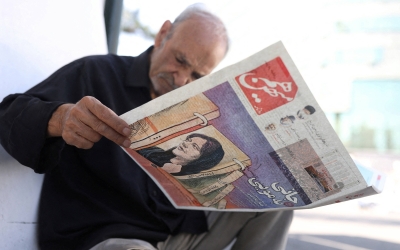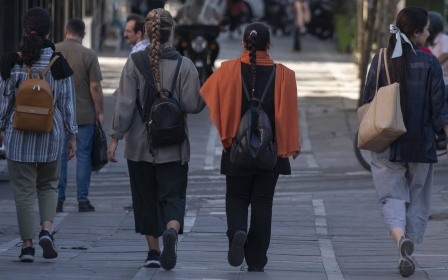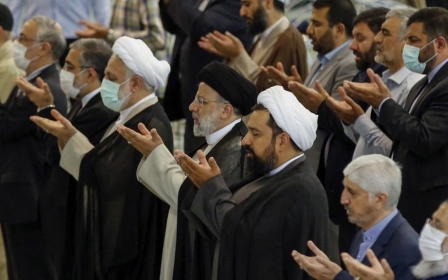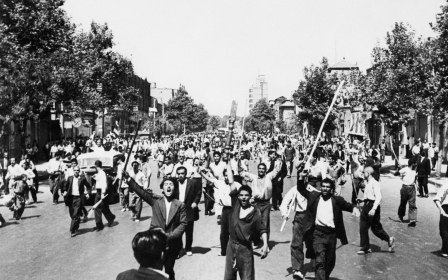Iran aligns universities with establishment in academic purge
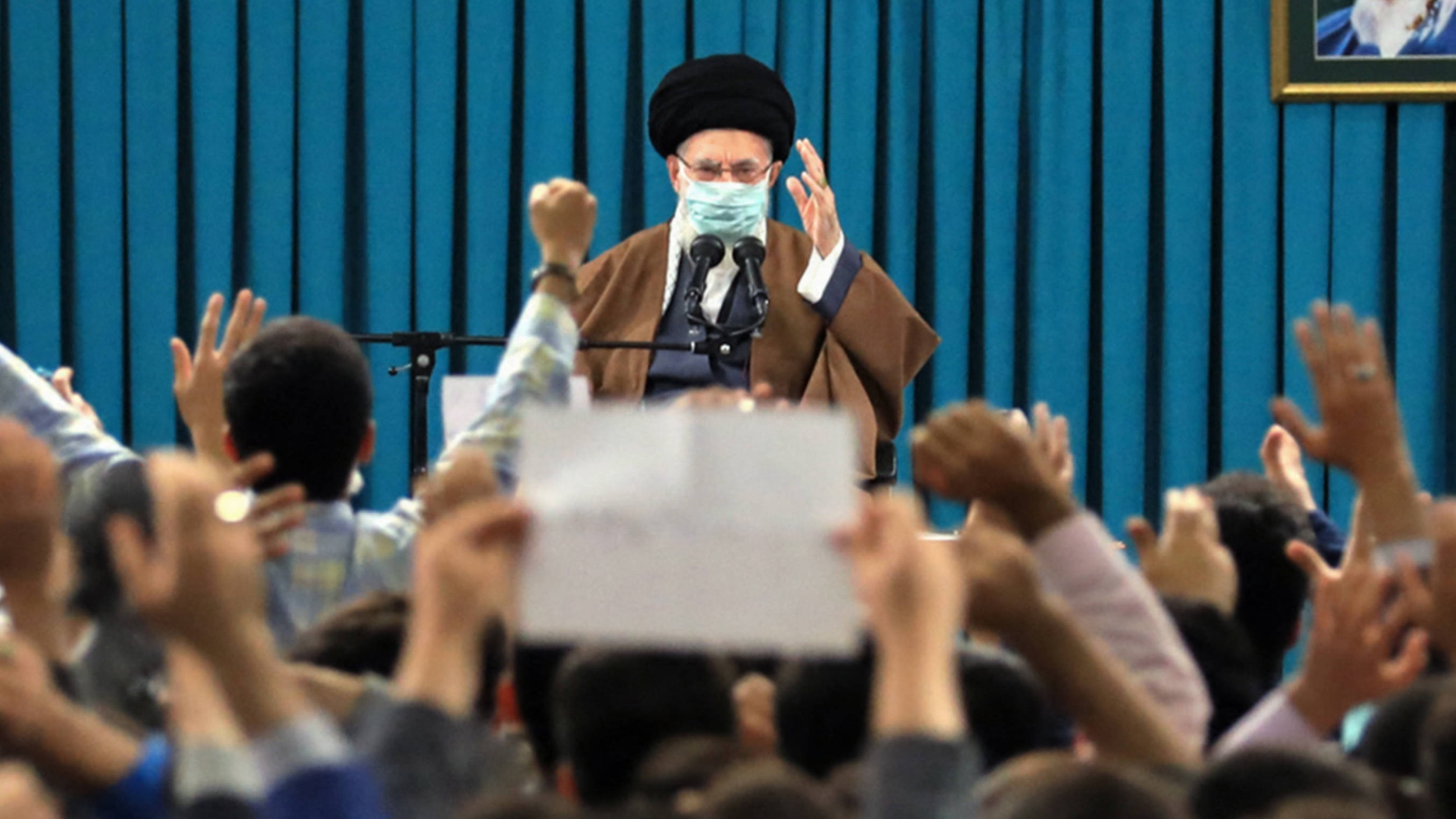
University professors who are critical of the establishment have witnessed their space steadily shrink in Iran over the past two years.
In recent weeks, however, authorities have dismissed dozens of independents from their posts in a project that has been called a "second cultural revolution" to purge higher education of professors whose views do not align with the Islamic Republic.
The administration of principlist President Ebrahim Raisi began sacking university professors, such as philosophy professor Bijan Abdul Karimi and sociologist Mohammad Fazeli, and philosophy researcher Arash Abazari, during the early months of his presidency in 2021.
But the rate of dismissals seems to have accelerated over the past few months, causing alarm across the academic and intellectual communities that the move would have a long-lasting effect on Iranian society.
In August, the reformist Etemad newspaper released a list of 58 professors who have been fired by the government since the purge began.
Among those who were recently sacked are Dariush Rahmanian, a distinguished history professor at Tehran University, and Ali Sharifi-Zarchi, professor of bioinformatics and artificial intelligence at Sharif University.
Zarchi was told that he was sacked because he failed to apply for a contract extension, a claim he refuted by publishing online documents of his application.
The list also includes former IRGC general Hossein Alaei, a reformist removed from Tehran University, and former culture minister Reza Salehi Amiri, who lost his job at the University of Azad.
When asked about the list, a science ministry spokesperson did not confirm the account, but said if there were reports about dismissals it is then possible that the individuals in question either no longer met the "scientific or general conditions of being a university professor" or their security status was under investigation by law enforcement agencies.
Dismissals have continued after Etemad published its report, and some officials have brought up new accusations when addressing the issue.
The head of the academic staff recruitment centre at the Ministry of Science, Mohammad Khalaj Amirhosseini, alleged that some professors' contracts were terminated due to moral issues, without specifying.
Similarly, the chancellor of Tehran University made allegations suggesting that "termination of cooperation with some professors is due to moral problems", contrary to media claims attributing their dismissals to political issues.
Imam Sadiq University in Tehran is known for its hardline approach, as it only tries to attract and nurture conservative students who remain fully loyal to the Islamic Republic.
The chief concern for the academic community has been the risk that the dismissals herald the spread of this principlist university's model to other universities across the country.
A glance at the positions held by Imam Sadiq graduates suggests the university's influence and the type of future that it could secure for them within the establishment. Notable alumni include Saeed Jalili, the former chief nuclear negotiator, who is known for his disapproval of any engagement and deal with the United States.
Observers are worried that the academic purge will pave the way for ultra-conservatives to take over all universities in Iran.
Alarming reports have emerged in recent weeks that professors with principlist ideologies have replaced those who have been dismissed.
New appointments include principlist TV host Amir Hossein Sabeti, who has recently joined the Sharif University, and famous principlist religious singer Saeed Haddadian, who is now teaching at Tehran University.
'A coup against science'
A secret document published by a hacker group on Telegram in mid-August cites a letter from Interior Minister Ahmad Vahidi indicating that the National Security Council has ordered that the recruitment of university faculty members must be done through a "special process".
The letter accuses professors who are "not aligned with the system" of playing a major role in the protests that swept the country last year following Mahsa Amini's death in police custody and anti-government student action at universities.
According to the document, the government has reportedly secretly started the process of recruiting 15,000 university faculty members whose views align with the Islamic Republic.
'If this trend persists, universities may transform into places where the principlist ideology is imposed on students'
- Reformist political activist
In an open letter, Mohsen Renani, a prominent professor of economics, described the process as "the second cultural revolution", and said it was "a coup by the security apparatus of the political system against science" and "the final shot to the brain of science".
At the dawn of the Cultural Revolution in 1980, which followed the Islamic Revolution, a sweeping transformation unfurled across Iranian academia as authorities sought to rid it of western influence.
The era witnessed the mass expulsion of professors and a comprehensive change in university curricula. As a result, a significant cadre of educators was fired and Iranian universities temporarily shuttered their doors.
Renani also drew attention to what he said was a worrying emigration of "a substantial cadre of young and erudite professors", who have either voluntarily departed from academia or been compelled to emigrate due to mounting pressures.
The prospect of individuals who lack the necessary qualifications being appointed in the field of higher education has raised alarm over the deterioration in the quality of education in Iran, which could have a far-reaching impact across different sectors.
Mahmoud Vaezi, a former diplomat and chief of staff to former President Hassan Rouhani, said the appointment of thousands of so-called "revolutionary" professors could lead to job insecurity as educational standards decrease.
Leaving Iran
Since Raisi came to power, the desire among many Iranians to emigrate has intensified, for various economic, political and social reasons. The lack of opportunities, however, has been the primary factor.
While emigration has been most notable among doctors and nurses, fears have grown over the past two years over the loss of specialised talents across different sectors in Iran.
'The dismissal of capable professors… is very worrying and harmful. It could discourage elites and intellectuals and lead to their migration'
– Ishaq Jahangiri, former vice president
Ishaq Jahangiri, the first vice president during Rouhani's government, has said, "The dismissal of capable professors who are also among critics, and students who protest, is very worrying and harmful. It could discourage elites and intellectuals and lead to their migration."
Similarly, moderate Hassan Khomeini, grandson of the Islamic Republic's founder Ayatollah Ruhollah Khomeini, said an increase in migration of elite professionals, triggered by the dismissals, would cause significant harm to the country and promote a "sense of despair and intellectual stagnation".
A moderate conservative professor in Tehran, who asked for anonymity when speaking to Middle East Eye, believes the ramifications of the wave of dismissals would pose a threat to Iran's image abroad.
"The reflection of disgruntled, powerful forces emigrating can be more perilous than other types of migration," the professor told MEE. "Such forces, armed with knowledge and expertise, can shed light on Iran's internal realities inside their destination countries, potentially inflicting severe blows to the Islamic Republic."
In an interview with local media, Abdulwahid Mousavi Lari, the interior minister in reformist Mohammad Khatami's government (1997-2005), likened the dismissals to a disease that, if unchecked, could erode the Islamic Republic from within.
'Self-destruction'
A video that has been recently making the rounds online shows Supreme Leader Ayatollah Ali Khamenei urging authorities under Rouhani to remove the professors who "challenge" the Islamic Republic.
A former conservative official who also spoke to MEE on condition of anonymity said, "Rouhani’s administration somehow resisted the leader’s order, but Raisi’s government is evidently the government of Khamenei himself.
"Therefore, I think the government is implementing the order of the leader and for sure they won't back down, as the leader is behind the recent wave of dismissal of professors who are critical of the Islamic Republic."
Mohammad Reza Tajik, a distinguished professor of political thought at Shahid Beheshti University, has delivered a particularly dire warning about the Islamic Republic's "self-destruction", suggesting that nothing will remain after this elimination-and-rejection project concludes.
Tajik urged authorities to increase their tolerance for dissenting voices and recognise opposing opinions, to ensure survival.
Meanwhile, a reformist political activist told MEE anonymously that the dismissal campaign indicates a repression of freedom of speech and diverse opinions in universities.
"If this trend persists, universities may transform into places where the principlist ideology is imposed on students," he said.
"This is concerning, as scientific progress relies on diverse and opposing ideas, critical discourse, and the open exchange of different perspectives.
"What [moderate leader] Ali Larijani recently said about a 'purification project' taking place in the political system is actually happening in the universities."
Middle East Eye propose une couverture et une analyse indépendantes et incomparables du Moyen-Orient, de l’Afrique du Nord et d’autres régions du monde. Pour en savoir plus sur la reprise de ce contenu et les frais qui s’appliquent, veuillez remplir ce formulaire [en anglais]. Pour en savoir plus sur MEE, cliquez ici [en anglais].



